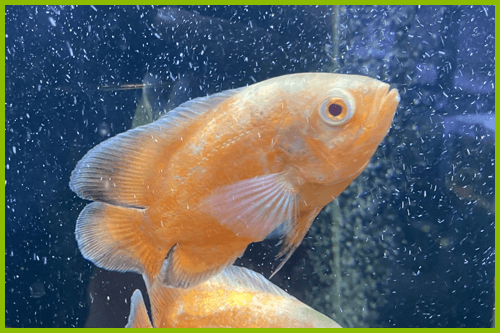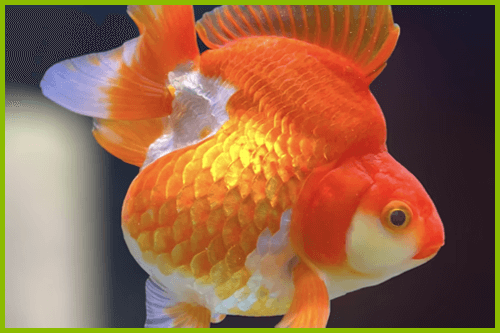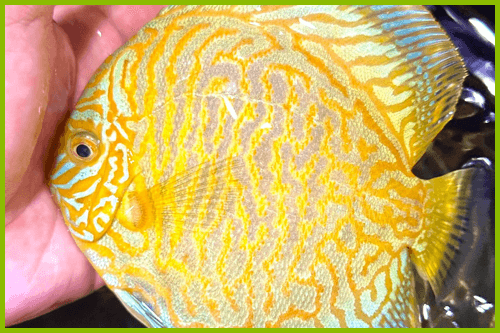How to Treat Fish Bloat: Symptoms, Causes, and Effective Treatment for Your Fish
The OZ Discus team teaches you how to recognise the symptoms of fish bloat, the causes of fish bloat, and the proper treatments.
Fish bloat is one of the most common health issues seen in aquarium fish, especially Discus fish and other sensitive species. If left untreated, a bloated fish can quickly decline. That’s why learning how to treat bloat in fish early on is key to saving your fish and keeping your aquarium healthy.
In this article, we’ll explore the causes, symptoms, and fish bloat treatments that actually work effectively, including natural options like Epsom Salt, for fish keepers like you.
What Is Fish Bloat?
Bloat in fish refers to the swelling or distension of a fish’s belly, caused by various digestive or internal health issues. While it may appear minor at first, discus bloat in particular can escalate quickly. It’s also sometimes confused with swim bladder problems.
This condition is not a disease in itself, but rather a symptom of an underlying issue, and it needs to be addressed with the right fish bloat cure.
Common Causes of Fish Bloat
Let’s look at what might be causing your fish’s bloated stomach:
- Constipation
Overfeeding or a lack of fibre in the diet can lead to blockage. - Indigestible or Spoiled Food
Food that’s too dry, low-quality, or unsuitable can ferment and cause gas build-up. - Bacterial Infections or Internal Inflammation
These are common in Discus bloat, especially in shared community tanks. - Swim Bladder Issues
Some cases of bloat can be mistaken for, or lead to, swim bladder dysfunction, especially in Discus. If your fish floats sideways or swims awkwardly, you may need a combined Discus swim bladder treatment.
Symptoms to Watch Out for in Fish Bloating
If you suspect bloat in fish, observe the following symptoms:
- Noticeably bloated or distended belly
- Lethargy and hiding behaviour
- Loss of appetite
- Floating oddly, e.g., tail up, head down
- Sinking or struggling to swim straight
These are clear warning signs that your fish may need immediate treatment.
How to Treat & Cure Bloat in Fish: The Most Effective Methods
Here are two proven methods to cure fish bloat at home: Metronidazole and Epsom Salt, trusted by breeders and hobbyists worldwide:
1. Metronidazole (Anti-Bacterial Treatment)
- Purpose: Treats internal infection and inflammation
- Dosage: 400 mg tablet per 40 L of water
- Instructions: Dissolve and apply in a quarantine tank
Often combined with Epsom Salt for a comprehensive fish bloat cure.
2. Epsom Salt for Fish (Natural Laxative & Muscle Relaxant)
- Purpose: Relieves constipation and digestive blockage
- Dosage: 15 g of epsom salt per 20 L of water
- Instructions: Add to a separate treatment tank and monitor response.
Epsom salt helps fish pass waste and relieves gut and swim bladder pressure.
Many hobbyists report fast results using Epsom Salt for bloated fish, especially when combined with fasting or light feeding.
It’s also necessary to note that this treatment lasts approximately 2–3 days, or up to 5–6 days in severe cases. Please stop the treatment once your fish recovers.
Aftercare & Long-Term Prevention
Follow these tips to avoid recurring bloating:
- Feed in small portions, and avoid overfeeding
- Include frozen or live food to support digestion
- Maintain excellent water quality
- Isolate new or sick fish to reduce stress and infection
- Observe behaviour closely, because prevention starts with awareness
These tips apply across species, from Discus to Goldfish, Betta, and Koi.
Conclusion
Fish bloat is typical but manageable if caught in time. Whether it’s a mild case of constipation or something more serious like discus bloat, knowing how to cure bloat in fish can make all the difference.
Always treat in a quarantine tank, monitor progress daily, and use fish bloat medicine responsibly. Prevention through good care is your best defence.
Disclaimer: This is a guide only. OZ Discus is not liable for any losses and holds no responsibility in the event of the death of the fish. Users of this guide are to use the information at their own discretion and accept all risks resulting from the use of this guide.
Looking for More Expert Tips? Or the Discus Collection in Australia?
Explore more fish care articles, ask us questions, or browse our collection.
Shop OZ Discus
Visit our Live Fish Explorer and discover our premium Discus fish for sale.
We import our fish from the best farms and breeders around the world to ensure that you have the highest quality Discus for your fishkeeping journey.










